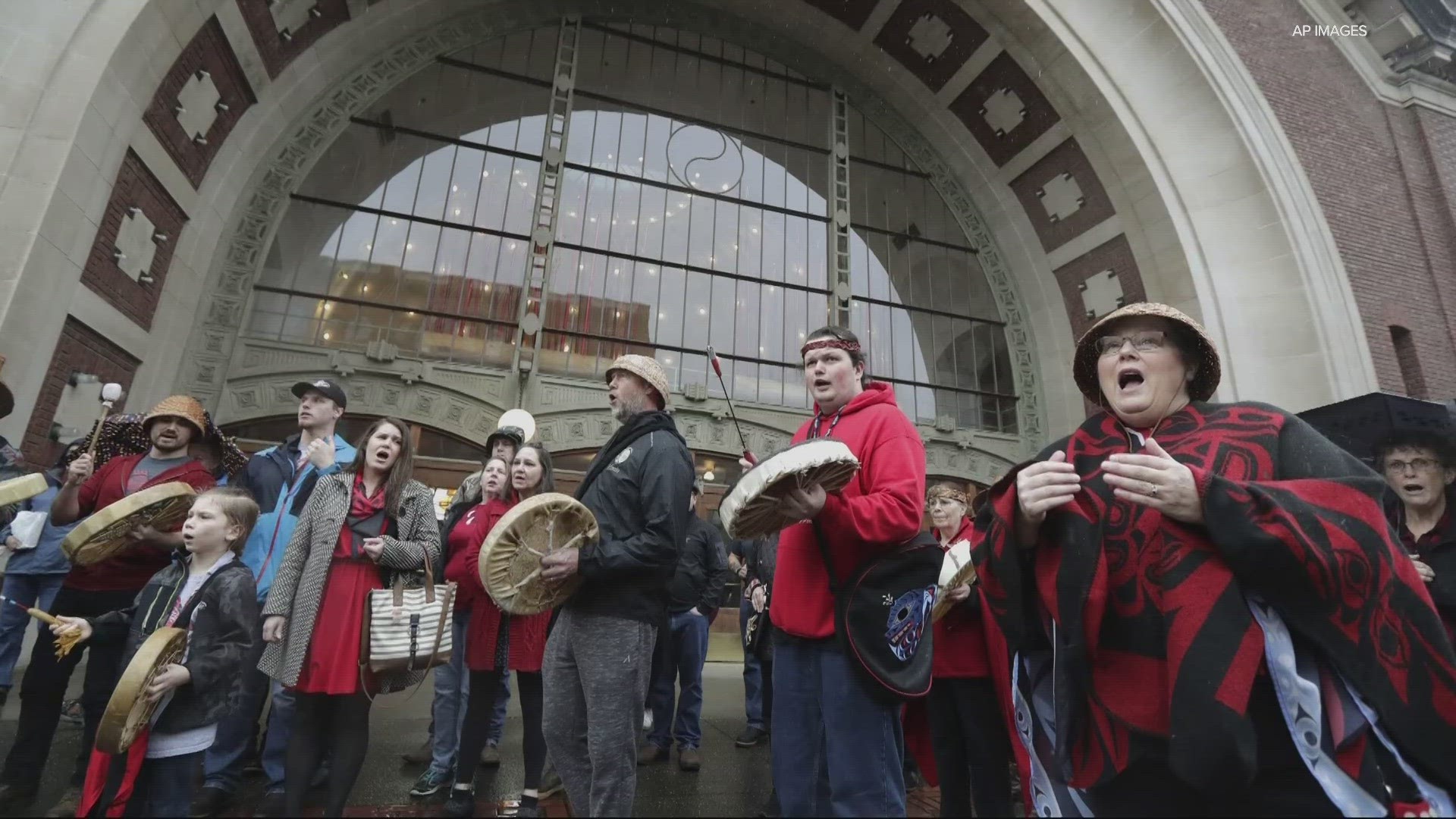PORTLAND, Oregon — When the Chinook Indian Nation (CIN) won a legal case back in 1970, they were awarded settlement funds as compensation for land taken from them by the U.S. government over 170 years ago. Now, 54 years later, a new legal victory has finally set in motion distributing those funds.
Leaders with the CIN held a news conference Thursday morning. They explained the significance of the ruling isn't only the funding, but more importantly, the acknowledgement of the CIN as the heirs of the Lower Chinook and Clatsop people.
"That acknowledgement and what it means for our current realities is priceless," said Tony Johnson, chairman of the CIN.
The CIN are made up of five tribes whose ancestral homes are around the mouth of the Columbia River in what is now Oregon and Washington. In the 1890s, the Chinook people hired their first attorneys to fight for land rights and seek damages. The Indian Claims Commission (ICC) acknowledged the CIN as heirs to the Lower Chinook and Clatsop people in 1958, then on Nov. 4, 1970, awarded them $48,692.05.
That compensation from the claim, known as Docket 234, was for land taken from the tribes in 1851. The funds were deposited into a trust account, but they were never distributed because an agreement over how to disperse it was never reached.
RELATED: Multnomah County commissioners rename Sauvie Island Bridge to honor Native American communities
In 2017, the CIN filed a lawsuit when the Bureau of Indian Affairs (BIA) withheld the money the government already awarded because of the Chinook's unclear federal status. The CIN had gained federal recognition in 2001 at the end of the Clinton administration. However, it was revoked 18 months later.
At the end of 2023, the Federal Courts, the Bureau of Indian Affairs (BIA) and Congress ruled that the Chinook Indian Nation are the legal heirs to the settlement funds awarded in 1970. The BIA's Northwest Regional Office, U.S. Secretary of the Interior Deb Haaland and Congress have approved the distribution plan for the money.
"Docket 234 is the embodiment of our sovereignty. Docket 234 represents our lands and represents our ancestors, and it reaffirms that that’s our sovereignty and no one else’s," said Rachel Cushman, Secretary Treasurer of the CIN.
The CIN also said their right to acquire Naselle Youth Camp has been reinforced. The former juvenile detention facility has been closed since 2022. It is located in Pacific County in Washington, within the land claim boundaries defined by Docket 234.
During Thursday's news conference, Johnson shared that he was born in 1970, the same year the settlement funds were awarded.
"My entire life, this has been something that has been dinner table conversations. It’s been fishing boat conversations, it’s been woodshed conversations," Johnson said. "Whatever it is, wherever our folks were, this has been such an important part of our modern history and to be a part of its resolution is really profound and meaningful to us."
Johnson said he believes the legal victory will help the Chinook Nation regain federal recognition, which will take an act of Congress.
"This Docket 234 decision is not the formal federal recognition that we’re seeking, but it is unambiguous recognition of our community’s existence and of our rightful title to the lands where we continue to live," Johnson said.

